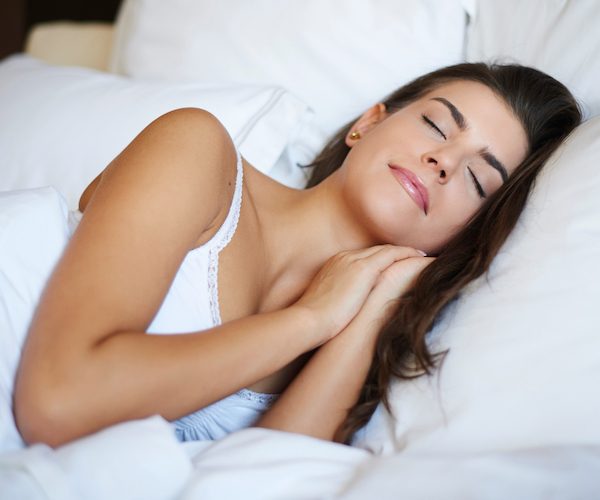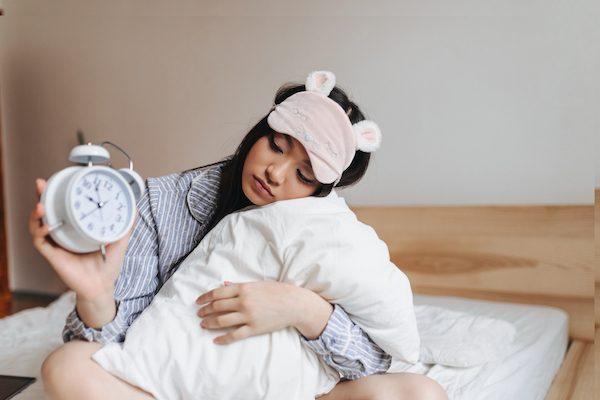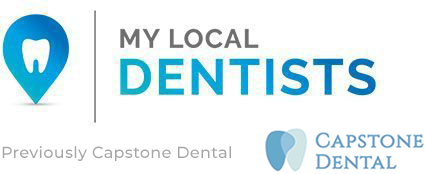Sleep Apnoea Treatment

Sleep Apnoea Treatment Seven Hills
Sleep apnoea is a severe sleep disorder that occurs when a person’s respiration is frequently interrupted. These disruptions can occur several times an hour, lasting from a few seconds to several minutes.
Obstructive Sleep Apnoea (OSA) is the most prevalent, in which the throat muscles occasionally relax and obstruct the airway while a person is asleep.
A different kind of sleep apnoea (CSA) happens when there is a breakdown in the brain’s communication with the airways. The combined conditions of OSA and CSA are known as complex sleep apnoea syndrome.
Symptoms of Sleep Apnoea
Recognising the symptoms of sleep apnoea is crucial for seeking timely treatment. Common signs include:
- Loud Snoring: The most noticeable signs of obstructive sleep apnoea are often loud and chronic snoring.
- Episodes of Breathing Cessation: These are often reported by a bed partner.
- Gasping for Air During Sleep: People with sleep apnoea may wake up abruptly with shortness of breath.
- Daytime Sleepiness: Disrupted sleep cycles cause excessive daytime drowsiness and weariness.
- Morning Headaches: A lack of oxygen during sleep can cause morning headaches.
- Difficulty Concentrating: Cognitive functions can be impaired, leading to issues with memory and focus.
- Irritability and Mood Changes: Sleep deprivation can result in mood swings, irritability, and even depression.
Diagnosis of Sleep Apnoea
A medical professional will assess your symptoms and might recommend that you see a sleep expert if sleep apnoea is suspected.

Diagnosis typically involves:
Medical Background and Physical Assessment
During the medical examination, your doctor will likely briefly assess you physically and discuss your medical history; this process consists of the back of the throat, mouth, and neck.
Sleep Studies
- Polysomnography (PSG) is an overnight study conducted in a sleep lab. It tracks blood oxygen levels, breathing patterns, arm and leg movements, and activity in the heart, lungs, and brain.
- Home Sleep Apnea Testing (HSAT): In some cases, a simplified version of PSG can be conducted at home using portable monitoring devices.
Treatment Options for Sleep Apnoea
Treating sleep apnoea effectively can improve sleep quality, overall health, and quality of life. Treatment options include:
- Lifestyle Changes:
- Weight Loss: Sleep apnoea is a substantial risk factor for obesity. Losing weight can reduce the severity of symptoms.
- Exercise: Frequent exercise can help lessen apnoea episodes and enhance sleep quality.
- Avoid Alcohol and Smoking: Alcohol relaxes the throat muscles, while smoking can increase inflammation and fluid retention in the airway.
- Continuous Positive Airway Pressure (CPAP):
- CPAP Therapy: This is the most popular and successful treatment for moderate to severe OSA. It requires sleeping with a mask covering the mouth and nose that continuously releases air to maintain an open airway.
- Oral Appliances:
- Mandibular Advancement Devices (MADs): These custom-made devices keep the airway open and the lower jaw forward.
- Surgery:
- Uvulopalatopharyngoplasty (UPPP) removes tissue from the back of your throat.
- Genioglossus Advancement (GA): This surgery moves the tongue muscle forward.
- Maxillomandibular Advancement (MMA) includes moving the upper and lower jaws forward.
- Other Therapies:
- Positional Therapy: Some people with OSA only have episodes when sleeping on their back. Wearing a gadget that forces you to sleep on your side is part of positional therapy.
- Adaptive Servo-Ventilation (ASV): This newer device learns your breathing pattern and adjusts the pressure accordingly. It is suitable for CSA or complex sleep apnoea.
Depending on the severity of your apnoea problems, we’ll refer you to a sleep physician who will assess you and potentially send you for a home sleep study, followed by a custom device to wear to bed.
Sleep Apnoea Treatment in Seven Hills
Dentists are the gatekeepers to a person’s oral health, and we may be one of the first health professionals to point out any breathing and sleeping disorders you may have without you realising it.
Call your Seven Hills dentist at (02) 8605 1696 or schedule an appointment online.
We are located at Shop 55, (Ground Floor) Seven Hills Plaza, 224 Prospect Hwy, in Seven Hills.
Can sleep apnoea go away on its own?
In some cases, especially mild ones, lifestyle changes like weight loss and quitting smoking can reduce or even eliminate symptoms. However, moderate to severe cases usually require medical treatment.
How long does it take to see improvements with CPAP therapy?
Many people notice an improvement in their symptoms within a few nights of using CPAP therapy. However, it can take several weeks for them to adjust to the treatment fully.
Are there any side effects of CPAP therapy?
Some people may experience nasal congestion, dry mouth, or discomfort while wearing the mask. However, a device, mask adjustments, and a humidifier can manage most side effects.
Is surgery a permanent solution for sleep apnoea?
Surgery can be effective for some individuals, but it’s not always a permanent solution. Some patients may still need other treatments post-surgery.
Can children have sleep apnoea?
Yes, children can have sleep apnoea, often due to enlarged tonsils or adenoids. Treatment may involve tonsillectomy and adenoidectomy, CPAP, or other therapies.
